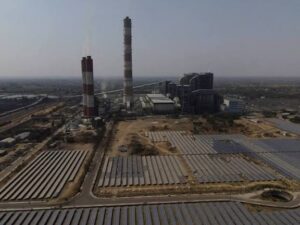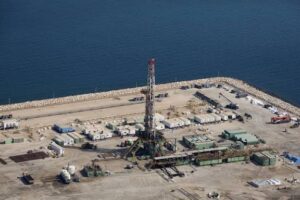Ogoni stakeholders are preparing to submit a comprehensive report to President Bola Tinubu on the planned resumption of oil exploration in Ogoniland, 32 years after Shell was forced to halt operations due to widespread protests.
Speaking on the progress of consultations, King Suanu Baridam, Paramount Ruler of the Baggage Kingdom and a member of the dialogue committee, said the group is finalising input from the four Ogoni local government areas—Khana, Gokana, Tai, and Eleme.“
The dialogue committee is trying to round up the entire Ogoni presentations. We’ve been able to put it all together,” Baridam said. “Later, we’ll go and present it to the government.”
President Tinubu had earlier met with Ogoni leaders in January and tasked them with returning home to seek wider community input before any decision could be taken.
Baridam confirmed that the people are generally open to oil resumption, but with clear conditions. “Yes, of course, they’re open to it—just that they placed some demands because of what has happened between us and Shell before,” he explained.
Among the key demands are employment for locals, equity participation in oil ventures, compensation for damages caused by previous operations, and the activation of the approved University of Environmental Technology.“There are so many untapped gas reserves, and we’re moving from oil to gas now,” the monarch added. “We decided to put the whole of that into perspective of what we want from the government.”
He emphasised the delicate nature of the engagement process, noting past mistrust stemming from years of environmental damage and neglect.“You have to allow the people to have trust in what you’re doing. That took us a very long time,” Baridam said. “Everybody was skeptical, but after one or two discussions, we proved there’s a sincere process.”
He cautioned that oil activities wouldn’t resume immediately, as substantial groundwork must first be laid.“It’ll take some years before they can do that. But the understanding is that let us agree they will take the oil—because whether you like it or not, we can’t say oil should remain underground forever.”
Baridam concluded by stressing the need to convert the region’s resources into tangible benefits: “We have to use the oil to better the life of our people and our youth. When there’s no employment, there’s going to be crime.”









